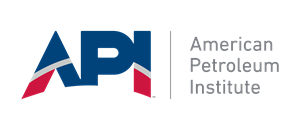API voices concerns about EPA’s proposed methane rule
WASHINGTON D.C. – The American Petroleum Institute (API) responded to the U.S. Environmental Protection Agency’s (EPA) proposed methane rule during a press conference on Monday, Feb. 13. The talk was led by API Senior Vice President Frank Macchiarola, who outlined several concerns with the EPA’s proposed rule that, if enacted without modification, could create barriers to the development of oil and gas resources and damage U.S. energy companies.
Mr. Macchiarola referenced a letter sent to EPA Administrator Michael S. Regan, stating that, “while we appreciate EPA’s responsiveness to many of the issues raised in our comments on the November 2021 Proposal, we still have serious concerns regarding the cost-effectiveness, technical feasibility and legal soundness of many aspects of the Supplemental Proposal.”
We (API) also have extensive concerns with EPA’s draft report on the social cost of GHG and the lack of transparency in the interagency group’s process. Moreover, we strongly disagree with EPA’s assertion that Nov. 15, 2021, can serve as the applicability date of the final rule for new, reconstructed and modified sources. Reducing methane emissions is a shared priority for EPA and our industry. We are committed to advancing the development, testing and utilization of new technologies and practices to better understand, detect, and further mitigate emissions.
Voluntary environmental partnership. In recent years, energy producers have implemented leak detection and repair (LDAR) programs, phased out the use of high-bleed pneumatic controllers and reduced emissions associated with flaring—voluntarily and under federal and state regulations. Voluntary, industry-led initiatives, such as the Environmental Partnership, have built on the progress industry has made to reduce emissions and continuously improve environmental performance.
Since its founding in 2017, the partnership has grown to include 100 companies, representing 70% of total U.S. onshore oil and natural gas production. The New Source Performance Standards (NSPS) and Emissions Guidelines (EG) are complex rules that will apply to hundreds of thousands of facilities owned and operated by these and other companies, including many facilities that have not previously been subject to regulation under the Clean Air Act.
More time required. Because of the wide variety of conditions faced by these facilities, the novel nature of a first-ever existing source rule and timing of the Supplemental Proposal’s release and subsequent overlap with the holiday season, API requested an extension of the comment period. This would have allowed additional time for our staff and our members to fully review the Supplemental Proposal and provide EPA with well-developed information necessary to promulgate an environmentally protective, technically feasible and cost-effective rule.
As we noted, API members who are engaged on this issue have been concurrently engaged in reviewing additional, recent, legal and regulatory developments on this subject matter. We regret that EPA did not grant the request and may rush to completion of a final rule that does not reflect the full measure of consideration necessary to ensure cost-effectiveness, technical feasibility and legal soundness.
Industry experts understand the challenge. In our review of the Supplemental Proposal, API once again considered the effectiveness of emission reduction strategies, safety, feasibility, operability and cost. Where appropriate, we have recommended changes to the regulatory text that will enable the final rule to meet these critically important criteria. We have also detailed the necessity of workable implementation timelines that consider the supply chain and labor constraints facing our industry—constraints which will be exacerbated as the final rule takes effect. The adoption of the recommendations in our comments in the final rule would reflect a more cost-effective and technically feasible regulation of methane.
API appreciates EPA’s engagement and responsiveness to our questions during the comment period. We remain committed to working constructively with the EPA and the Biden Administration to finalize a cost-effective rule that incentivizes innovation, advances the progress made in reducing emissions and addressing climate change, and ensures that our industry can continue to provide the world with the affordable, reliable energy it requires.



